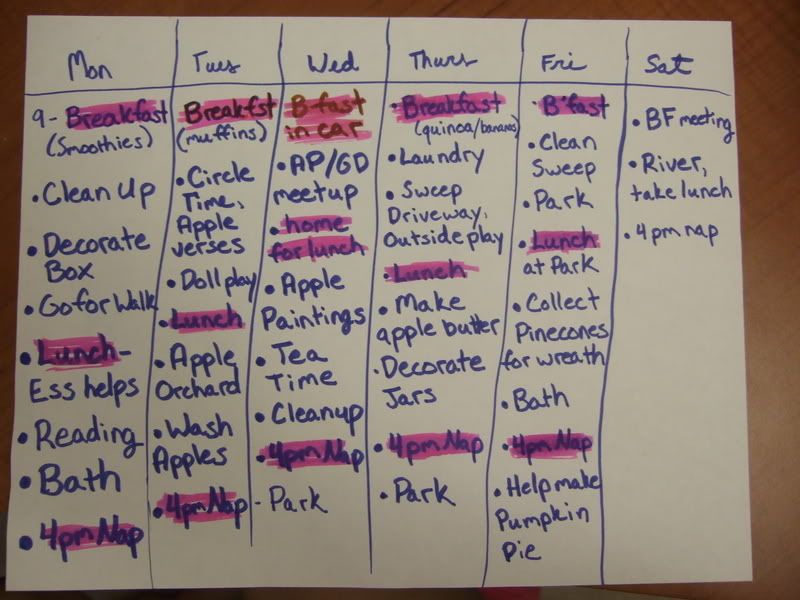Since she turned 3, Barefoot and I have been running around after her non-stop. Lots of dumping, lots of messes, lots of smearing and stirring and mixing of things that shouldn't be smeared or stirred or mixed. :-P
I finally had an "aha!" moment one day when I walked into the kitchen and saw she'd poured an entire carton of rice milk into a half-empty jar of peanut butter, and was dutifully sprinkling the soggy mess with a bottle of oregano. I asked in exasperation (after muffling a big blue streak), "WHY would you DO that??" She answered proudly, "I'm sorry you're mad. I'm making a recipe just like YOU, mommy!! It's tasty!"
My anger melted as I watched her bravely wince and ladle to stuff into her little mouth, grunting in forced satisfaction.
Snorking down a secret giggle, I seriously sat her down and we had a talk about respecting things, how she wanted to do things for herself, and how we could do both at the same time.
The solution was that she would be allowed in the kitchen and could have access to the fridge, as long as she only took food from a special shelf designated for only Mirth. She wanted a box with dinosaurs with snacks in it on the shelf. I went out the next day and got supplies to make the box, which ended up being decorated with dragons and knights after a failed search for dino stickers. :-P
-------------------------------------------------------------------------------------------------
In addition, that evening, I took a blow to my free-spirited side (as well as my adult-oriented nature) and made out a schedule for our weekdays. (A big "Thank You" to my friend Allison for prodding me in that direction ;-) )

So far, it's working out well, and I'm staying a few steps ahead of her fairly easily! Whoot!! :oD
I'm trying to plan out "outside" time (at least 2 hours of it) every day, along with a general theme for the week that goes along with the season of the year. This week, it's harvest time and apples. :-)
Our schedule is completely subject to Mirth and Lark's natural rhythms, more a general order of planned things rather than a rigid itinerary. A few things, like lunch and naptime are non-negotiable and sacred. No trips or projects or stimulating things during sleepy time of day, lol, or disaster will surely follow.
(Soapbox of the Day: I, btw, completely take issue with the notion that parents who attribute "bad" behavior to sleepiness or hunger or illness are simply making excuses for sinfulness, and that recognizing rough times of the day will set them up to be "wild" adults. I don't know anyone who acts nicely when overly-tired. :-P I agree that parents should teach children self-control for times when they feel badly...I just believe that doing so means teaching them to take good care of themselves and getting the needs for sleep and food met ASAP, if possible! Jesus slept when he was sleepy and ate when He was hungry- I can't expect more than that from my kids! ;-) )
I found a lot of fun Waldorf-inspired hands on activities and nature themed verses to go along with our work and play. I love the playful teaching and structure it adds...
So far, so good! She's like a wild rose with a trellis to climb now, and we're all pleased with the result: the family's things are treated with respect, and so is she! :-D

